- Home
- H. P. Lovecraft
Lovecraft's Fiction Volume I, 1905-1925 Page 14
Lovecraft's Fiction Volume I, 1905-1925 Read online
Page 14
The starting-day was a time of doubt and apprehension. Carter climbed up to his envelope-platform, on the pretext of sailing for the triple star Nython, and crawled into the sheath of shining metal. He had just room to perform the ritual of the silver key, and as he did so he slowly started the levitation of his envelope. There was an appalling seething and darkening of the day, and hideous racking of pain. The cosmos seemed to reel irresponsibly, and the other constellations danced in a black sky.
All at once Carter felt a new equilibrium. The cold of interstellar gulfs gnawed at the outside of his envelope, and he could see that he floated free in space - the metal building from which he had started having decayed years before. Below him the ground was festering with gigantic Dholes; and even as he looked, one reared up several hundred feet and leveled a bleached, viscous end at him. But his spells were effective, and in another moment he was alling away from Yaddith, unharmed.
Chapter Seven
In that bizarre room in New Orleans, from which the old black servant had instinctively fled, the odd voice of Swami Chandraputta grew hoarser still.
"Gentlemen," he continued, "I will not ask you to believe these things until I have shown you special proof. Accept it, then, as a myth, when I tell you of the thousands of light-years - thousands of years of time, and uncounted billions of miles that Randolph Carter hurtled through space as a nameless, alien entity in a thin envelope of electron-activated metal. He timed his period of suspended animation with utmost care, planning to have it end only a few years before the time of landing on the Earth in or near 1928.
"He will never forget that awakening. Remember, gentlemen, that before that eon long sleep he had lived consciously for thousands of terrestrial years amidst the alien and horrible wonders of Yaddith. There was a hideous gnawing of cold, a cessation of menacing dreams, and a glance through the eye-plates of the envelope. Stars, clusters, nebulae, on every hand - and at last their outline bore some kinship to the constellations of Earth that he knew.
"Some day his descent into the solar system may be told. He saw Kynath and Yuggoth on the rim, passed close to Neptune and glimpsed the hellish white fungi that spot it, learned an untellable secret from the close glimpsed mists of Jupiter, and saw the horror on one of the satellites, and gazed at the cyclopean ruins that sprawl over Mars' ruddy disc. When the Earth drew near he saw it as a thin crescent which swelled alarmingly in size. He slackened speed, though his sensations of homecoming made him wish to lose not a moment. I will not try to tell you of these sensations as I learned them from Carter.
"Well, toward the last Carter hovered about in the Earth's upper air waiting till daylight came over the Western Hemisphere. He wanted to land where he had left - near the Snake Den in the hills behind Arkham. If any of you have been away from home long - and I know one of you has - I leave it to you how the sight of New England's rolling hills and great elms and gnarled orchards and ancient stone walls must have affected him.
"He came down at dawn in the lower meadow of the old Carter place, and was thankful for the silence and solitude. It was autumn, as when he had left, and the smell of the hills was balm to his soul. He managed to drag the metal envelope up the slope of the timber lot into the Snake Den, though it would not go through the weed-choked fissure to the inner cave. It was there also that he covered his alien body with the human clothing and waxen mask which would be necessary. He kept the envelope here for over a year, till certain circumstances made a new hiding-place necessary.
"He walked to Arkham - incidentally practicing the management of his body in human posture and against terrestrial gravity - and his gold changed to money at a bank. He also made some inquiries - posing as a foreigner ignorant of much English - and found that the year was 1930, only two years after the goal he had aimed at.
"Of course, his position was horrible. Unable to assert his identity, forced to live on guard every moment, with certain difficulties regarding food, and with a need to conserve the alien drug which kept his Zkauba-facet dormant, he felt that he must act as quickly as possible. Going to Boston and taking a room in the decaying West End, where he could live cheaply and inconspicuously, he at once established inquiries concerning Randolph Carter's estate and effects. It was then that he learned how anxious Mr. Aspinwall, here, was to have the estate divided, and how valiantly Mr. de Marigny and Mr. Phillips strove to keep it intact."
The Hindoo bowed, though no expression crossed his dark, tranquil, and thickly bearded face.
"Indirectly," he continued, "Carter secured a good copy of the missing parchment and began working on its deciphering. I am glad to say that I was able to help in all this - for he appealed to me quite early, and through me came in touch with other mystics throughout the world. I went to live with him in Boston - a wretched place in Chambers Street. As for the parchment - I am pleased to help Mr. de Marigny in his perplexity. To him let me say that the language of those hieroglyphics is not Naacal, but R'lyehian, which was brought to Earth by the spawn of Cthulhu countless ages ago. It is, of coarse, a translation - there was an Hyperborean original millions of years earlier in the primal tongue of Tsath-yo.
"There was more to decipher than Carter had looked for, but at no time did he give up hope. Early this year he made great strides through a book he imported from Nepal, and there is no question but that he will win before long. Unfortunately, however, one handicap has developed - the exhaustion of the alien drug which keeps the Zkauba-facet dormant. This is not, however, as great a calamity as was feared. Carter's personality is gaining in the body, and when Zkauba comes upper most - for shorter and shorter periods, and now only when evoked by some unusual excitement - he is generally too dazed to undo any of Carter's work. He can not find the metal envelope that would take him hack to Yaddith, for although he almost did, once, Carter hid it anew at a time when the Zkanba-facet was wholly latent. All the harm he has done is to frighten a few people and create certain nightmare rumors among the Poles and Lithuanians of Boston's West End. So far, he had never injured the careful disguise prepared by the Carter-facet, though he sometimes throws it off so that parts have to be replaced. I have seen what lies beneath - and it is not good to see.
"A month ago Carter saw the advertisement of this meeting, and knew that he must act quickly to save his estate. He could not wait to decipher the parchment and resume his human form. Consequently he deputed me to act for him.
"Gentlemen, I say to you that Randolph Carter is not dead; that he is temporarily in an anomalous condition, but that within two or three months at the outside he will be able to appear in proper form and demand the custody of his estate. I am prepared to offer proof if necessary. Therefore I beg that you will adjourn this meeting for an indefinite period."
Chapter Eight
De Marigny and Phillips stared at the Hindoo as if hypnotized, while Aspinwall emitted a series of snorts and bellows. The old attorney's disgust had by now surged into open rage and he pounded the table with an apoplectically veined fit When he spoke, it was in a kind of bark.
"How long is this foolery to be borne? I've listened an hour to this madman - this faker - and now he has the damned effrontery to say Randolph Carter is alive - to ask us to postpone the settlement for no good reason! Why don't you throw the scoundrel out, de Marigny? Do you mean to make us all the butts of a charlatan or idiot?"
De Marigny quietly raised his hand and spoke softly.
"Let us think slowly and dearly. This has been a very singular tale, and there are things in it which I, as a mystic not altogether ignorant, recognize as far from impossible. Furthermore - since 1930 I have received letters from the Swami which tally with his account."
As he paused, old Mr. Phillips ventured a word.
"Swami Chandraputra spoke of proofs. I, too, recognize much that is significant in this story, and I have myself had many oddly corroborative letters from the Swami during the last two years; but some of these statements are very extreme. Is there not something tangible which ca
n be shown?"
At last the impassive-faced Swami replied, slowly and hoarsely, and drawing an object from the pocket of his loose coat as he spoke.
"While none of you here has ever seen the silver key itself, Messrs. de Marigny and Phillips have seen photographs of it. Does this look familiar to you?"
He fumblingly laid on the table, with his large, white-mittened hand, a heavy key of tarnished silver - nearly five inches long, of unknown and utterly exotic workmanship, and covered from end to end with hieroglyphs of the most bizarre description. De Marigny and Phillips gasped.
"That's it!" cried de Marigny. "The camera doesn't lie I couldn't be mistaken!"
But Aspinwall had already launched a reply.
"Fools! What does it prove? If that's really the key that belonged to my cousin, it's up to this foreigner - this damned nigger - to explain how he got it! Randolph Carter vanished with the key four years ago. How do we know he wasn't robbed and murdered? He was half crazy himself, and in touch with still crazier people.
"Look here, you nigger - where did you get that key? Did you kill Randolph Carter?"
The Swami's features, abnormally placid, did not change; but the remote, irisless black eyes behind them blazed dangerously. He spoke with great difficulty.
"Please control yourself, Mr. Aspinwall. There is another form of poof that I could give, but its effect upon everybody would not be pleasant. Let us be reasonable. Here are some papers obviously written since 1930, and in the unmistakable style of Randolph Carter."
He clumsily drew a long envelope from inside his loose coat and handed it to the sputtering attorney as de Marigny and Phillips watched with chaotic thoughts and a dawning feeling of supernal wonder.
"Of course the handwriting is almost illegible - but remember that Randolph Carter now has no hands well adapted to forming human script."
Aspinwall looked through the papers hurriedly, and was visibly perplexed, but he did not change his demeanor. The room was tense with excitement and nameless dread and the alien rhythm of the coffin-shaped clock had an utterly diabolic sound to de Marigny and Phillips, though the lawyer seemed affected not at all.
Aspinwall spoke again. "These look like clever forgeries. If they aren't, they may mean that Randolph Carter has been brought under the control of people with no good purpose. There's only one thing to do - have this faker arrested. De Marigny, will you telephone for the police?"
"Let us wait," answered their host. "I do not think this case calls for the police. I have a certain idea. Mr. Aspinwall, this gentleman is a mystic of real attainments. He says he is in the confidence of Randolph Carter. Will it satisfy you if he can answer certain questions which could be answered only by one in such confidence? I know Carter, and can ask such questions. Let me get a book which I think will make a good test."
He turned toward the door to the library, Phillips dazedly following in a kind of automatic way. Aspinwall remained where he was, studying closely the Hindoo who confronted him with abnormally impassive face. Suddenly, as Chandraputra clumsily restored the silver key to his pocket the lawyer emitted a guttural shout.
"Hey, by Heaven I've got it! This rascal is in disguise. I don't believe he's an East Indian at all. That face - it isn't a face, but a mask! I guess his story put that into my head, but it's true. It never moves, and that turban and beard hide the edges. This fellow's a common crook! He isn't even a foreigner - I've been watching his language. He's a Yankee of some sort. And look at those mittens - he knows his fingerprints could be spotted. Damn you, I'll pull that thing off -"
"Stop!" The hoarse, oddly alien voice of the Swami held a tone beyond all mere earthly fright "I told you there was another form of proof which I could give if necessary, and I warned you not to provoke me to it. This red-faced old meddler is right; I'm not really an East Indian. This face is a mask, and what it covers is not human. You others have guessed - I felt that minutes ago. It wouldn't be pleasant if I took that mask off - let it alone. Ernest, I may as well tell you that I am Randolph Carter."
No one moved. Aspinwall snorted and made vague motions. De Marigny and Phillips, across the room, watched the workings of the red face and studied the back of the turbaned figure that confronted him. The clock's abnormal ticking was hideous and the tripod fumes and swaying arras danced a dance of death. The half-choking lawyer broke the silence.
"No you don't, you crook - you can't scare me! You've reasons of your own for not wanting that mask off. Maybe we'd know who you are. Off with it - "
As he reached forward, the Swami seized his hand with one of his own clumsily mittened members, evoking a curious cry of mixed pain and surprise. De Marigny started toward the two, but paused confused as the pseudo-Hindoo's shout of protest changed to a wholly inexplicable rattling and buzzing sound. Aspinwall's red face was furious, and with his free hand he made another lunge at his opponent's bushy beard. This time he succeeded in getting a hold, and at his frantic tug the whole waxen visage came loose from the turban and clung to the lawyer's apoplectic fist.
As it did so, Aspinwall uttered a frightful gurgling cry, and Phillips and de Maigny saw his face convulsed with a wilder, deep and more hideous epilepsy of stark panic than ever they had seen on human countenance before. The pseudo-Swami had meanwhile released his other hand and was standing as if dazed, making buzzing noises of a most abnormal quality. Then the turbaned figure slumped oddly into a posture scarcely human, and began a curious, fascinated sort of shuffle toward the coffin-shaped clock that ticked out its cosmic and abnormal rhythm. His now uncovered face was turned away, and de Marigny and Phillips could not see what the lawyer's act had disclosure. Then their attention was turned to Aspinwall, who was sinking ponderously to the floor. The spell was broken-but when they reached the old man he was dead.
Turning quickly to the shuffling Swami's receding back, de Marigny saw one of the great white mittens drop listlessly off a dangling arm. The fumes of the olibanum were thick, and all that could be glimpsed of the revealed hand was something long and black... Before the Creole could reach the retreating figure, old Mr. Phillips laid a hand on his shoulder.
"Don't!" he whispered, "We don't know what we're up against. That other facet, you know - Zkauba, the wizard of Yaddith... "
The turbaned figure had now reached the abnormal clock, and the watchers saw though the dense fumes a blurred black claw fumbling with the tall, hieroglyphed door. The fumbling made a queer, clicking sound. Then the figure entered the coffin-shaped case and pulled the door shut after it.
De Marigny could no longer be restrained, but when he reached and opened the clock it was empty. The abnormal ticking went on, beating out the dark, cosmic rhythm which underlies all mystical gate-openings. On the floor the great white mitten, and the dead man with a bearded mask clutched in his hand, had nothing further to reveal.
* * * * *
A year passed, and nothing has been heard of Randolph Carter. His estate is still unsettled. The Boston address from which one "Swami Chandraputra" sent inquiries to various mystics in 1930-31-32 was indeed tenanted by a strange Hindoo, but he left shortly before the date of the New Orleans conference and has never been seen since. He was said to be dark, expressionless, and bearded, and his landlord thinks the swarthy mask - which was duly exhibited - looked very much like him. He was never, however, suspected of any connection with the nightmare apparitions whispered of by local Slavs. The hills behind Arkham were searched for the "metal envelope," but nothing of the sort was ever found. However, a clerk in Arkham's First National Bank does recall a queer turbaned man who cashed an odd bit of gold bullion in October, 1930.
De Marigny and Phillips scarcely know what to make of the business. After all, what was proved?
There was a story. There was a key which might have been forged from one of the pictures Carter had freely distributed in 1928. There were papers - all indecisive. There was a masked stranger, but who now living saw behind the mask? Amidst the strain and the olibanum fumes that act
of vanishing in the clock might easily have been a dual hallucination. Hindoos know much of hypnotism. Reason proclaims the "Swami" a criminal with designs on Randolph Carter's estate. But the autopsy said that Aspinwall had died of shock. Was it rage alone which caused it? And some things in that story...
In a vast room hung with strangely figured arras and filled with olibanum fumes, Etienne Laurent de Marigny often sits listening with vague sensations to the abnormal rhythm of that hieroglyphed, coffin-shaped clock.
Winged Death
by H. P. Lovecraft and Hazel Heald
Written 1933
Published March 1934 in Weird Tales, 23, No. 3, 299-315.
THE Orange Hotel stands in High Street near the railway station in Bloemfontein, South Africa. On Sunday, January 24, 1932, four men sat shivering from terror in a room on its third floor. One was George C. Titteridge, proprietor of the hotel; another was police constable Ian De Witt of the Central Sation; a third was Johannes Bogaert, the local coroner; the fourth, and apparently the least disorganized of the group, was Doctor
Cornelius Van Keulen, the coroner's physician.
On the floor, uncomfortably evident amid the stifling summer heat, was the body of a dead man--but this was not what the four were afraid of. Their glances wandered from the table, on which lay a curious assortment of things, to the ceiling overhead, across whose smooth whiteness a series of huge, faltering alphabetical characters had somehow been scrawled in ink; and every now and then Doctor Van Keulen would glance half furtively at a worn leather blank-book, the scrawled words on the ceiling, and a dead fly of peculiar aspect which floated in a bottle of ammonia on the table. Also on the table were an open inkwell, a pen and writing- pad, a physician's medical case, a bottle of hydrochloric acid, and a tumbler about a quarter full of black oxide of manganese.

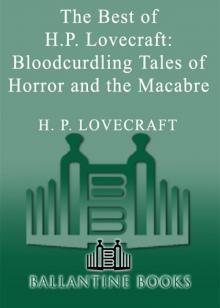 The Best of H.P. Lovecraft
The Best of H.P. Lovecraft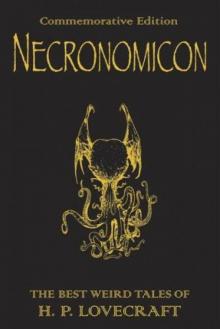 The Definitive H.P. Lovecraft: 67 Tales Of Horror In One Volume
The Definitive H.P. Lovecraft: 67 Tales Of Horror In One Volume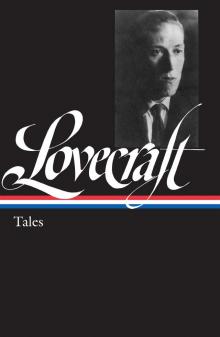 The Complete Works of H.P. Lovecraft
The Complete Works of H.P. Lovecraft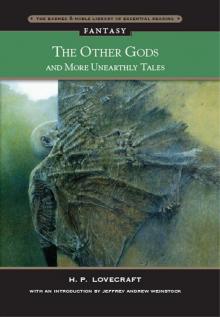 Other Gods and More Unearthly Tales
Other Gods and More Unearthly Tales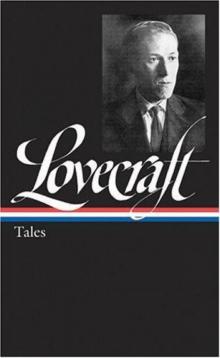 Lovecraft's Fiction Volume I, 1905-1925
Lovecraft's Fiction Volume I, 1905-1925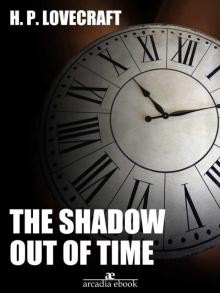 The Shadow Out of Time
The Shadow Out of Time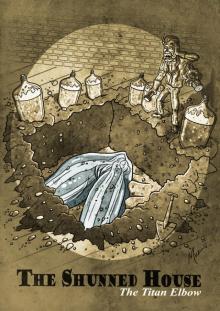 The Shunned House
The Shunned House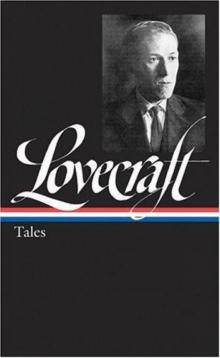 Lovecraft's Fiction Volume II, 1926-1928
Lovecraft's Fiction Volume II, 1926-1928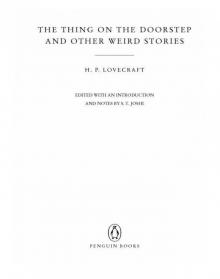 The Thing on the Doorstep and Other Weird Stories
The Thing on the Doorstep and Other Weird Stories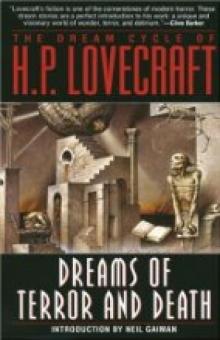 Dream Cycle of H. P. Lovecraft: Dreams of Terror and Death
Dream Cycle of H. P. Lovecraft: Dreams of Terror and Death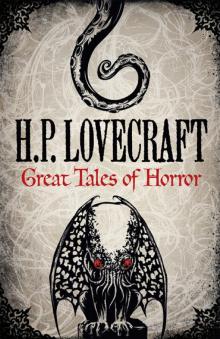 Great Tales of Horror
Great Tales of Horror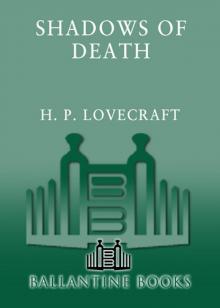 Shadows of Death
Shadows of Death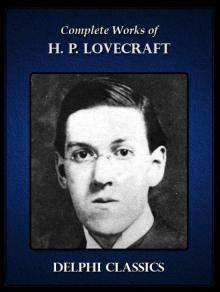 Delphi Complete Works of H. P. Lovecraft (Illustrated)
Delphi Complete Works of H. P. Lovecraft (Illustrated)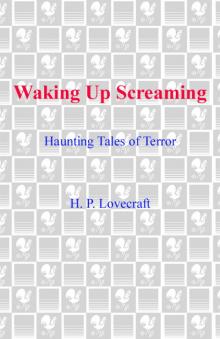 Waking Up Screaming: Haunting Tales of Terror
Waking Up Screaming: Haunting Tales of Terror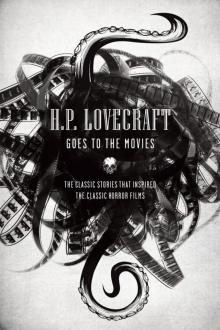 H.P. Lovecraft Goes to the Movies
H.P. Lovecraft Goes to the Movies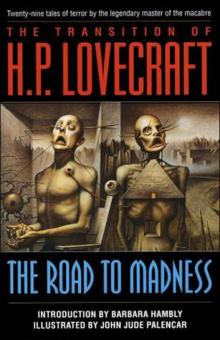 The Road to Madness
The Road to Madness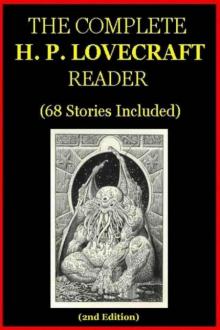 The Complete H.P. Lovecraft Reader (68 Stories)
The Complete H.P. Lovecraft Reader (68 Stories)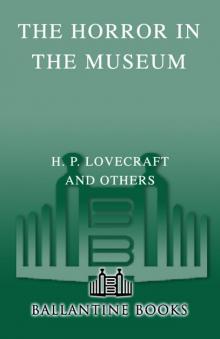 The Horror in the Museum
The Horror in the Museum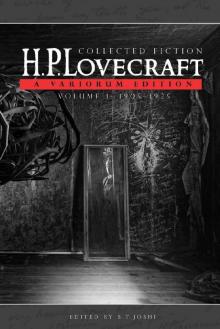 Collected Fiction Volume 1 (1905-1925): A Variorum Edition
Collected Fiction Volume 1 (1905-1925): A Variorum Edition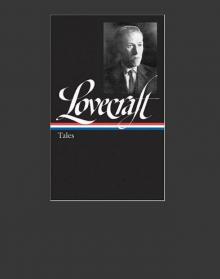 Lovecrafts_Fiction, vol.I_1905-1925
Lovecrafts_Fiction, vol.I_1905-1925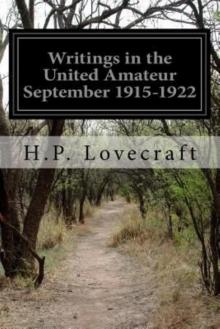 Writings in the United Amateur, 1915-1922
Writings in the United Amateur, 1915-1922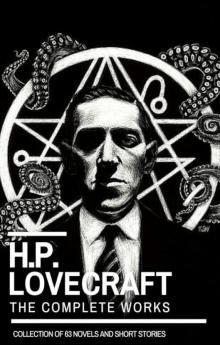 H.P. Lovecraft: The Complete Works
H.P. Lovecraft: The Complete Works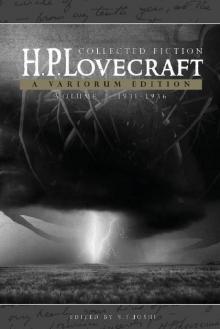 Collected Fiction Volume 3 (1931-1936): A Variorum Edition
Collected Fiction Volume 3 (1931-1936): A Variorum Edition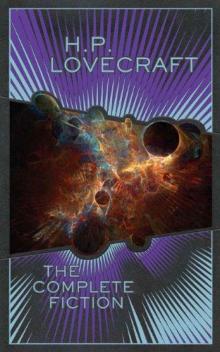 H.P. Lovecraft: The Complete Fiction
H.P. Lovecraft: The Complete Fiction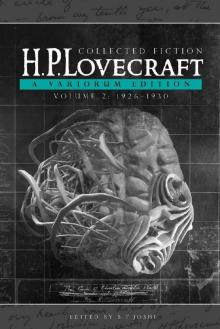 Collected Fiction Volume 2 (1926-1930): A Variorum Edition
Collected Fiction Volume 2 (1926-1930): A Variorum Edition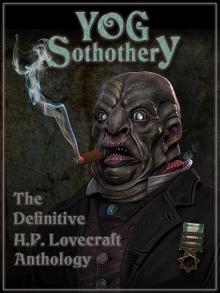 Yog Sothothery - The Definitive H.P. Lovecraft Anthology
Yog Sothothery - The Definitive H.P. Lovecraft Anthology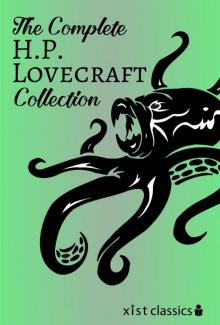 The Complete H.P. Lovecraft Collection (Xist Classics)
The Complete H.P. Lovecraft Collection (Xist Classics)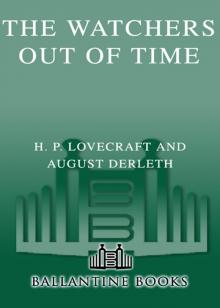 The Watchers Out of Time
The Watchers Out of Time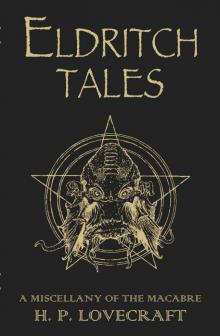 Eldritch Tales
Eldritch Tales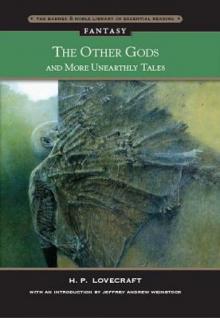 The Other Gods And More Unearthly Tales
The Other Gods And More Unearthly Tales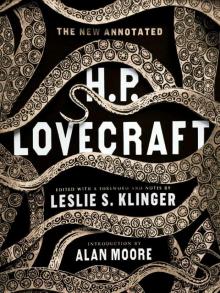 The New Annotated H. P. Lovecraft
The New Annotated H. P. Lovecraft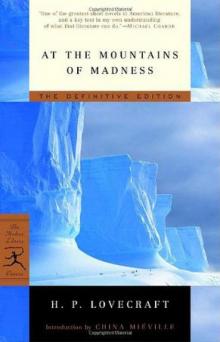 At the mountains of madness
At the mountains of madness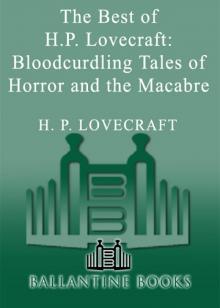 Bloodcurdling Tales of Horror and the Macabre
Bloodcurdling Tales of Horror and the Macabre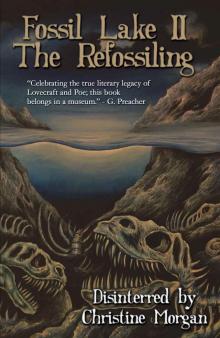 Fossil Lake II: The Refossiling
Fossil Lake II: The Refossiling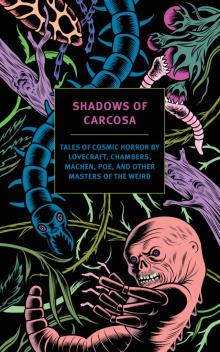 Shadows of Carcosa: Tales of Cosmic Horror by Lovecraft, Chambers, Machen, Poe, and Other Masters of the Weird
Shadows of Carcosa: Tales of Cosmic Horror by Lovecraft, Chambers, Machen, Poe, and Other Masters of the Weird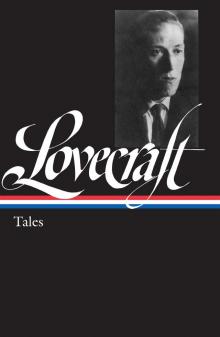 H. P. Lovecraft
H. P. Lovecraft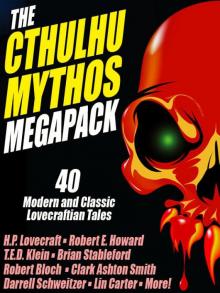 The Cthulhu Mythos Megapack
The Cthulhu Mythos Megapack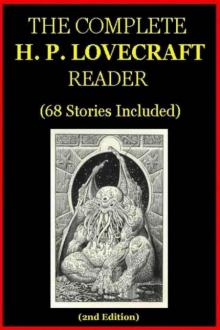 The Complete H. P. Lovecraft Reader (2nd Edition)
The Complete H. P. Lovecraft Reader (2nd Edition)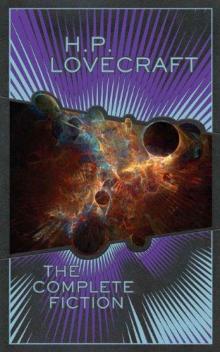 The Complete Fiction
The Complete Fiction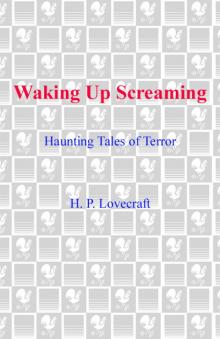 Waking Up Screaming
Waking Up Screaming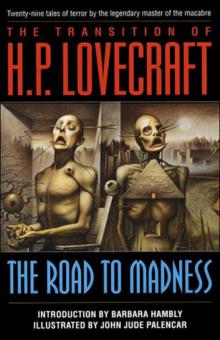 Transition of H. P. Lovecraft
Transition of H. P. Lovecraft![[1935] The Shadow Out of Time Read online](http://i1.bookreadfree.com/i2/04/12/1935_the_shadow_out_of_time_preview.jpg) [1935] The Shadow Out of Time
[1935] The Shadow Out of Time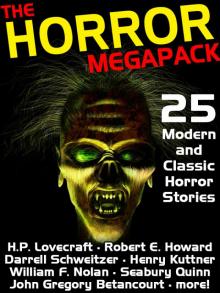 The Horror Megapack
The Horror Megapack